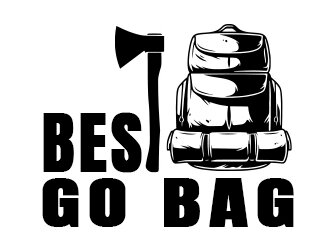What’s more important, quantity or quality? I’d have to say, in most cases, quality is more important. As a general rule, I’d rather have a smaller amount of a quality product than a larger amount of an inferior product.
With your survival stockpile, both quality and quantity are important. You definitely want to have plenty of non-perishable food on hand with a long shelf life. You never know how long a crisis will last.
But you also want to make sure your survival food is of high quality. In other words, nutritious. With plenty of protein and calories to get you through what is certain to be a rough stretch.
Today I want to focus on the quality of your survival food stash. But I also want to mention something nearly as important as both quality and quantity. And that’s variety.
Don’t overdo fresh foods
Before I get into a list of what I consider the best – and worst – foods to stockpile, let me mention this.
It’s fine to have plenty of fresh fruits, vegetables, meats, etc., in your refrigerator. There’s nothing better than fresh when it comes to food.
But keep in mind that if the power goes out and you have no way to keep your fridge running, you’re going to want to eat that fresh food sooner rather than later. It won’t stay fresh for long.
And this is exactly why it’s crucial to have plenty of non-perishable food ready for the consumption of your family and you.
Looking at the best
So, here’s a list of foods that are either non-perishable or have longer shelf lives than most other foods.
- Freeze-dried fruits and vegetables. Long shelf life and low moisture content. They can be reconstituted quickly and generally keep their texture, color, shape and taste.
- Dehydrated fruits and vegetables. This is the oldest food preservation method. It requires less storage space than freeze-dried foods. And it’s easy to transport from one place to another.
- Peanut butter, which provides energy, protein and healthy fats. Eat it right out of the jar or spread it on healthy crackers.
- Nuts, including walnuts, almonds, pistachios, cashews and pecans.
- Seeds, such as sunflower, pumpkin, sesame, chia and flaxseeds.
- Granola bars, which supply much-needed carbohydrates. Just make sure they don’t contain much sugar.
- Pasta. It’s high in carbohydrates and can be used in a variety of ways with different foods.
- Whole grains store well and are great for making bread, pancakes and baked goods.
- Whole grain rice is another good source of carbs. Goes with just about any meal.
- Dried beans stay good for a long time. Lots of protein, especially for a non-meat source.
- Powdered milk is a good source of Vitamin D and calcium. It will supply some of your dairy needs. Can be used for baking.
- Canned food could go into either the best or worst category. They’re heavy and require a lot of storage space. Some contain high levels of sodium. But they offer a wide variety of foods, most of which are generally nutritious. They come in handy when you’re hunkering down.
- Bottled water. This water is seldom as “pure” as manufacturers want you to think with their colorful labels. But you can never have too much water on hand. Even more important, have a water purifier.
Looking at the worst
I promised to also mention the worst foods you can include in your survival stockpile. Some of these are pretty obvious.
- Sugar-laden snacks. While it’s important to have some comfort foods in your stash, stay away from ones that will give you a sugar rush followed by a crash. Such as candy and candy bars, potato chips, and soda/pop.
- Energy drinks. These drinks have very little nutritional value. They might keep you awake, but that’s about it. They can also make some people jittery, which you don’t need in an emergency.
- Breakfast cereals. In addition to having short shelf lives, these cereals usually have very little nutritional content. If you want to include a few boxes in your stash, choose ones with little or no sugar.
Variety is the spice of life
Getting back to the subject of variety, let me make a few comments.
Variety is an essential part of the process of choosing which foods to store. Different foods provide different nutrients. Variety also helps prevent appetite fatigue.
Yes, you can survive by eating the same thing day after day. At least for a while. But stockpiling a variety of ready-to-eat food will lend itself to more frequent eating and a much better mental outlook on your situation.
So, focus on quality and add variety. And if you’re able, beef up your quantity whenever you can.

